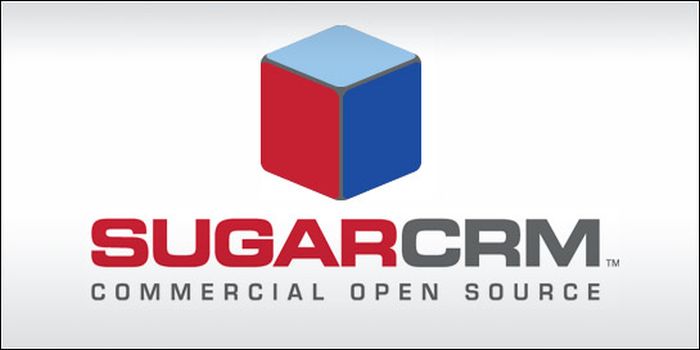SugarCRM sets the stage for this enthralling narrative, offering readers a glimpse into a story that is rich in detail and brimming with originality. From its humble beginnings to its powerful features, SugarCRM is a force to be reckoned with in the realm of customer relationship management.
Introduction to SugarCRM
SugarCRM is a customer relationship management software that has been in the market for many years, providing businesses with tools to manage their customer interactions effectively.
History and Background of SugarCRM
SugarCRM was founded in 2004 and has since grown to become a leading CRM software provider. It offers a range of solutions to help businesses of all sizes streamline their sales, marketing, and customer support processes.
Core Features and Functionalities of SugarCRM
- Customizable dashboards for real-time insights
- Lead and opportunity management
- Contact and account management
- Email integration for seamless communication
- Workflow automation to streamline processes
Target Market for SugarCRM
SugarCRM caters to a wide range of industries, including technology, finance, healthcare, and more. It is suitable for businesses looking to improve their customer relationships and increase efficiency in their operations.
SugarCRM Editions
SugarCRM offers three main editions - Community, Professional, and Enterprise. Each edition is tailored to meet the specific needs of different businesses, ranging from small startups to large enterprises.
Community Edition
- Free and open-source version of SugarCRM.
- Basic CRM functionalities such as lead management, contact management, and campaign tracking.
- Community support only, no official technical support from SugarCRM.
Professional Edition
- Mid-tier option with more advanced features than the Community Edition.
- Includes advanced reporting, forecasting, and workflow automation.
- Offers professional support from SugarCRM.
- Pricing starts at a monthly subscription fee per user.
Enterprise Edition
- Top-tier edition with the most comprehensive set of features and functionalities.
- Advanced customization options, integrations, and security features.
- 24/7 premium support from SugarCRM.
- Flexible pricing based on the number of users and additional add-ons.
SugarCRM Implementation
Implementing SugarCRM in a company involves several steps to ensure a successful integration of the CRM system into the organization's operations. It is crucial to address common challenges and adhere to best practices for a smooth implementation process.
Steps for Implementing SugarCRM
- Assess Business Needs: Identify the specific requirements and goals the company aims to achieve with SugarCRM.
- Plan and Design: Develop a detailed implementation plan outlining the timeline, resources, and responsibilities for each stage.
- Customize and Configure: Tailor SugarCRM to align with the company's unique processes and workflows.
- Data Migration: Transfer existing data from legacy systems to SugarCRM while ensuring data integrity.
- Training and Adoption: Provide comprehensive training to employees on how to use SugarCRM effectively to maximize its benefits.
- Testing and Quality Assurance: Conduct thorough testing to identify and resolve any issues before full deployment.
- Go-Live and Support: Launch SugarCRM across the organization and provide ongoing support to address any concerns or challenges.
Common Challenges during SugarCRM Implementation
- Inadequate Planning: Rushing into implementation without a well-defined plan can lead to confusion and inefficiencies.
- User Resistance: Employees may resist change or struggle to adapt to the new system, impacting adoption rates.
- Data Integration Issues: Difficulty in integrating SugarCRM with existing systems can result in data discrepancies and errors.
- Lack of Training: Insufficient training can hinder user proficiency and limit the system's effectiveness.
- Scope Creep: Adding new features or functionalities during implementation can lead to delays and budget overruns.
Best Practices for Successful SugarCRM Implementation
- Engage Stakeholders: Involve key stakeholders from different departments in the planning and decision-making process.
- Set Clear Goals: Define clear objectives and key performance indicators to measure the success of the implementation.
- Communicate Effectively: Keep employees informed about the implementation process, changes, and benefits of using SugarCRM.
- Iterative Approach: Implement SugarCRM in phases to address issues gradually and ensure a smoother transition.
- Post-Implementation Evaluation: Regularly assess the system's performance and user feedback to make necessary improvements.
SugarCRM Customization
Customization in SugarCRM allows users to tailor the platform to their specific needs, enhancing user experience and efficiency. From modifying modules to creating custom fields and layouts, the customization options in SugarCRM are extensive and powerful.
Customizing Modules
Customizing modules in SugarCRM involves adapting the existing modules or creating new ones to suit the unique requirements of a business. Users can add, remove, or rearrange fields within modules, define relationships between modules, and customize the layout of module views to streamline processes and improve productivity.
Customizing Fields
SugarCRM offers the flexibility to create custom fields within modules to capture additional information that is relevant to your business processes
. These custom fields can be tailored to specific data types, such as text, date, dropdown lists, or checkboxes, providing users with a more comprehensive view of their data and enabling better decision-making.
Customizing Layouts
Customizing layouts in SugarCRM allows users to design the interface according to their preferences, making it more intuitive and user-friendly. By rearranging fields, tabs, and sections within module views, users can optimize the layout for easier navigation and improved data visibility, ultimately enhancing the overall user experience.
SugarCRM Integration
Integrating SugarCRM with other business tools and systems is crucial for maximizing efficiency and productivity. By connecting SugarCRM with various applications, organizations can streamline operations, enhance data management, and improve overall business processes.
Popular Third-Party Applications for Integration
- Salesforce: Integration with Salesforce allows for seamless data synchronization between the two platforms, enabling a more holistic view of customer interactions and sales activities.
- MailChimp: Integrating SugarCRM with MailChimp enables automated email marketing campaigns based on CRM data, enhancing customer engagement and lead nurturing.
- Zendesk: By integrating with Zendesk, SugarCRM users can access customer support tickets directly within the CRM system, facilitating better customer service and issue resolution.
Benefits of Seamless Integration
- Improved Efficiency: Integration eliminates manual data entry and duplication, saving time and reducing errors in data management.
- Enhanced Visibility: Seamless integration provides a unified view of customer data across different systems, enabling better decision-making and personalized customer interactions.
- Streamlined Processes: Connecting SugarCRM with other tools automates workflows and streamlines processes, leading to increased productivity and operational efficiency.
SugarCRM Reporting and Analytics
Reporting and analytics play a crucial role in helping businesses make data-driven decisions and optimize their processes. In SugarCRM, users have access to a variety of reporting tools and features that enable them to extract valuable insights from their data.
Reporting Capabilities in SugarCRM
SugarCRM offers robust reporting capabilities that allow users to create and customize a wide range of reports to suit their specific needs. Some of the key reporting features in SugarCRM include:
- Pre-built report templates for common sales, marketing, and customer service metrics
- Custom report builder for creating personalized reports based on unique criteria
- Interactive dashboards for visualizing key performance indicators at a glance
- Scheduled report delivery to ensure stakeholders receive timely updates
Types of Reports in SugarCRM
Users can generate various types of reports in SugarCRM to gain insights into different aspects of their business. Some examples of the types of reports that can be generated in SugarCRM include:
- Sales pipeline reports to track opportunities and forecast revenue
- Customer activity reports to monitor engagement and interactions
- Marketing campaign performance reports to evaluate the effectiveness of campaigns
- Service case resolution reports to measure customer satisfaction and support efficiency
Driving Informed Decision-Making with SugarCRM Analytics
By leveraging the analytics and insights derived from SugarCRM reports, businesses can make informed decisions that drive growth and profitability. These insights enable organizations to:
- Identify trends and patterns in customer behavior to tailor their offerings
- Optimize sales and marketing strategies based on real-time data
- Improve customer service by addressing pain points and enhancing satisfaction
- Forecast future performance and make proactive adjustments to achieve goals
SugarCRM Mobile App
The SugarCRM mobile app is a powerful tool that allows users to access their CRM data on-the-go, anytime and anywhere. It provides a seamless experience for managing customer relationships and sales activities directly from mobile devices, such as smartphones and tablets.
Features and Functionality
- Access to real-time customer data: Users can view and update customer information, leads, opportunities, and account details on the fly.
- Task and calendar management: Stay organized with tasks, events, and appointments synced with the desktop version for efficient scheduling.
- Offline capabilities: Work offline and access critical data even without an internet connection, with changes syncing once back online.
- Mobile notifications: Receive alerts and reminders for important tasks and upcoming events to stay on top of your sales activities.
Benefits of Accessing SugarCRM on Mobile Devices
- Flexibility and productivity: Access CRM data anytime, anywhere, enabling remote work and increasing productivity on-the-go.
- Improved customer service: Instant access to customer information allows for quick responses and better service delivery.
- Real-time updates: Stay informed with real-time updates on leads, opportunities, and customer interactions for timely decision-making.
User Experiences and Best Practices
- Customize the mobile app: Tailor the app to your specific needs by configuring layouts, modules, and dashboards for a personalized experience.
- Stay organized: Use task management features to prioritize activities, set reminders, and track progress for efficient sales operations.
- Regularly sync data: Ensure data consistency by regularly syncing updates between the mobile app and the desktop version to avoid discrepancies.
- Utilize mobile-friendly features: Take advantage of mobile-specific features like tap-to-call, location-based services, and voice-to-text input for enhanced usability.
SugarCRM Security
When it comes to data security, SugarCRM implements robust measures and protocols to ensure the protection of sensitive information stored within the system. This is crucial in maintaining the trust of users and adhering to data protection regulations.
Compliance with Data Protection Regulations
SugarCRM places a strong emphasis on compliance with data protection regulations such as the General Data Protection Regulation (GDPR). This means that the platform is designed to help organizations meet the requirements set forth by these regulations, ensuring the privacy and security of user data.
Tips for Maintaining Data Security
- Regularly update and patch your SugarCRM instance to protect against vulnerabilities.
- Implement strong password policies and encourage users to use complex passwords.
- Restrict access to sensitive data to only authorized personnel.
- Encrypt sensitive data both in transit and at rest to prevent unauthorized access.
- Regularly monitor user activity within SugarCRM to detect any suspicious behavior.
Final Wrap-Up
In conclusion, SugarCRM stands as a versatile and robust tool that can revolutionize how businesses manage their customer relationships. With its various editions, customization options, and seamless integrations, SugarCRM caters to businesses of all sizes and industries, paving the way for enhanced efficiency and growth.
General Inquiries
What are the core features of SugarCRM?
SugarCRM offers features such as lead management, opportunity tracking, contact management, email integration, and reporting tools.
How does SugarCRM ensure data security?
SugarCRM implements security measures like role-based access control, data encryption, and compliance with data protection regulations to safeguard user data.
Is SugarCRM suitable for small businesses?
Yes, SugarCRM offers editions like the Community edition that are cost-effective and suitable for small businesses looking to manage customer relationships effectively.






